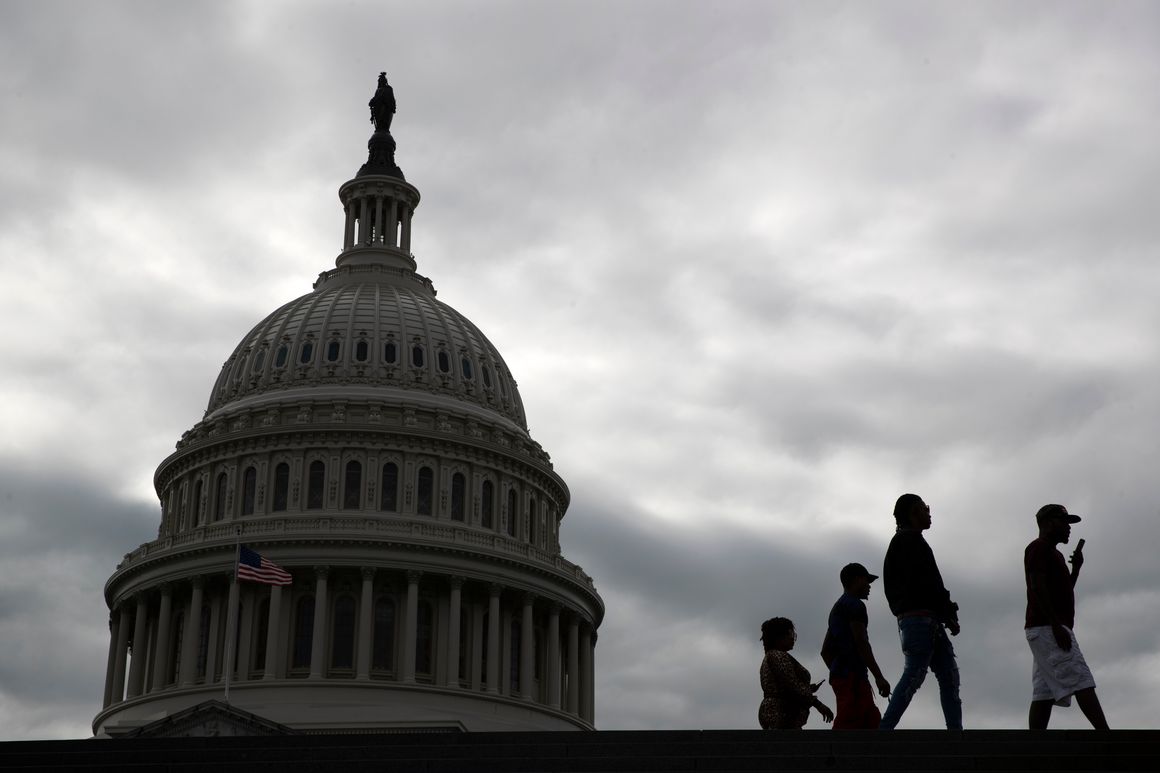
“I’m pretty much in limbo,” said Wayne A. Rodriquez Jr., an American University student who interned in Rep. Jim Himes’ office this semester until two weeks ago, when his internship abruptly ended due to coronavirus fears. “I don’t really know where to go from here, because I was supposed to carry on, and now, I’m unemployed.”
Unlike their colleagues in staff jobs, who are federal employees, interns are totally discretionary — each office hires its own — even as they are subject to many of the same centralized rules that apply to staffers. Similarly, it’s left to each individual congressional office how to handle coronavirus — whether that meant a premature end to internships, a work-from-home arrangement, or something else entirely. So, almost at random, as some of their offices swung into furious action and some went into hibernation, interns found themselves on the outside.
While some congressional interns have been forced to work from home, others have been furloughed or had their program cut completely. Those who are out of work join the swelling ranks of Americans who have lost their jobs in recent days, and whose career prospects remain uncertain as the economy tumbles and businesses shut down.
By March 12, the day after a Senate staffer tested positive for the coronavirus, some congressional offices had begun ordering their staff to work remotely. For some interns, whose programs are managed by individual offices, that marked an unceremonious end to their short semester on the Hill.
“[That] was my last day, and I was only in [the office] for like two hours,” said one congressional intern, who, like most interviewed for this article, spoke on the condition of anonymity because they were not authorized to talk to the press and feared that doing so could hurt their career prospects. “I didn’t even say goodbye to anyone.”
For young politicos, congressional internships are something of a rite of passage — the first rung of the ladder in a career in government and politics. Each semester, hundreds of college students flock to congressional offices to answer phone calls and emails, give tours to constituents, draft press releases, research legislation and schedule appointments. Many of those tasks are impossible to do remotely, and even among those interns who were able to retain their positions, it’s impossible to access the secure congressional computers and networks necessary to do many of their usual daily tasks.
“To go from working eight or nine hours a day to doing two or three hours of work, if that, is pretty difficult,” said one House intern, who’s working remotely and still getting paid. “I’m used to doing stuff all day, and now I’m doing nothing.”
Another House intern told POLITICO that he’s been out of work for a week and a half, since his member’s office began working from home. He’s still receiving a monthly $500 stipend, but can’t access his House email account remotely and hasn’t been assigned any work. In the meantime, he’s waiting out the crisis at his mom’s house in Maryland, and preparing to apply for other jobs in D.C.
Capitol Hill, long known for its close quarters where members and staff mingle collegially as a constant stream of visitors pass through, is seen as particularly vulnerable to the spread of the novel coronavirus. Members must vote in person, even as the Center for Disease Control urges Americans to gather in groups of no larger than 10. The average age of a House member is nearly 59; for Senators, it’s 63. Two House members and one Senator have already tested positive for the virus, with dozens more in self-quarantine.
Congressional offices often hire interns from the pool of students in Washington-area colleges. But those schools, like most across the country, have shut down to slow the spread of the coronavirus. Some of the region’s largest colleges, including Georgetown, George Washington University, Howard University and American University, are shuttering their dorms and shifting classes online — leaving students scrambling to figure out their housing situations, move out of the dorms and wrap up their internships.
One student at GWU whose House internship ended two weeks ago, said that even if their member’s office returns to in-person work, they won’t be able to live in D.C. to finish their internship: They’ve already moved all their belongings out of the dorm, flown home, and the college will not let students move back.
Another student, a Senate intern who is now working remotely, took the semester off from college to intern on Capitol Hill. He had been living in dorm-style housing with six other congressional interns who are now unable to work from their members’ offices. After a few days cooped up with his roommates, unable to get work done — or even to seek reprieve by taking his laptop to the neighborhood Starbucks — he packed up his belongings and moved out of the dorm to stay with relatives in the area.
“I’m hoping that this isn’t the end of my internship,” he said. “I guess it really makes me value the ability to be able to do in-person work experience a lot more.”
Source: politico.com
See more here: news365.stream






